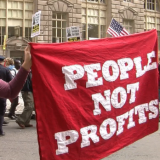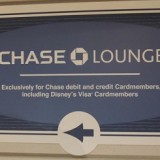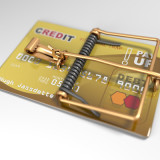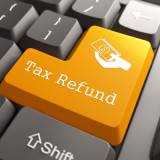How the Occupy Card Doesn’t Live up to its Promise
by Shane Tripcony
The terms and conditions of credit, debit and prepaid cards are not what anyone would call scintillating reading. Layered with legalese and hard to decipher jargon, these documents have traditionally (and understandably) been ignored by consumers. Which is too bad because they contain the sort of vital information people need to make smart financial decisions.
By contrast, the recently announced fee structure for the Occupy Card is a legitimately fascinating read. The Occupy Card is a prepaid debit card that an offshoot of the Occupy Wall Street Movement is hoping to soon introduce to the marketplace, the first of what the so-called Occupy Money Cooperative would like to be an array of financial products and services. And while the proposed fees are not the fully-fledged terms one would wade through with an already available prepaid card, there’s one section you probably won’t find with many other cards: how to avoid the fees. (To be fair, Account Now generously offers tips to save money on their fees page as well, so kudos to Account Now, as well.)
For instance, the issuers of the Occupy Card dutifully note that it will cost users $1.95 to take money out of an ATM, the result of network and other third party charges (ie. not Occupy’s fault). But to dodge that fee, the Occupy Money Cooperative urges people to get cash back while shopping. It goes on and on like this, with the designers of the Occupy Card offering tips on how to get around fees whenever possible.
Arguably, in a financial services industry that many believe seeks out revenue generating fees the way a shark hones in on blood, the mere existence of a card-provider tip sheet about avoiding them is incredible. Of course, it’s not a huge surprise, given the Occupy Movement’s loathing of the way it believes Wall Street mistreats its customers and harms society.
Now, don’t expect other issuers of prepaid debit cards to suddenly follow Occupy’s lead and highlight ways to sidestep their fees. (It sure would be nice, though!) But the sad truth is that they won’t need to because the non-profit, stick-it-to-the-man Occupy Card is far less consumer-friendly than many of the prepaid cards offered by the big banks. That’s right, the greedy capitalists from Wall Street have many, many prepaid debit cards that would cost consumers far less than the offering from the former residents of Zuccotti Park.
While the Occupy Card has a low monthly account fee of $0.99, the $1.95 charge to take money out of an ATM is painful for anyone – no matter whether it’s the fault of Occupy or not. Also costly are fees for getting basic account information. The Occupy Card charges $2 to speak with a customer service representative and $0.99 to get automated help. As with most consumer-friendly prepaid debit cards, there’s no charge to load the Occupy Card using direct deposit. But any other method to load the card will set people back as much as $5 per transaction. That’s not exactly the kind of help the 99% need.
It’s also not going to help the Occupy Card gain much traction in the marketplace. Based on our calculations, the average annual fees for the Occupy Card would cost the average consumer $259.40 per year. Truth be told, that lands the Occupy Card squarely in the middle of the pack. There are alternatives, such as Bluebird by American Express, which cost the consumer nothing, based on our standard formula. There are quite a few other cards that average out with lower fees as well. Cards from banking behemoths like Chase and U.S. Bank and American Express offer free ATM withdrawals and cash loads and are, overall, a far better deal for consumers. Even with the fee differences, the Occupy Card does send a message, and many consumers may find the importance of sending that message to be worth those higher fees. Bottom line, here’s the question for everybody: Are you up for occupying the Occupy Card?





